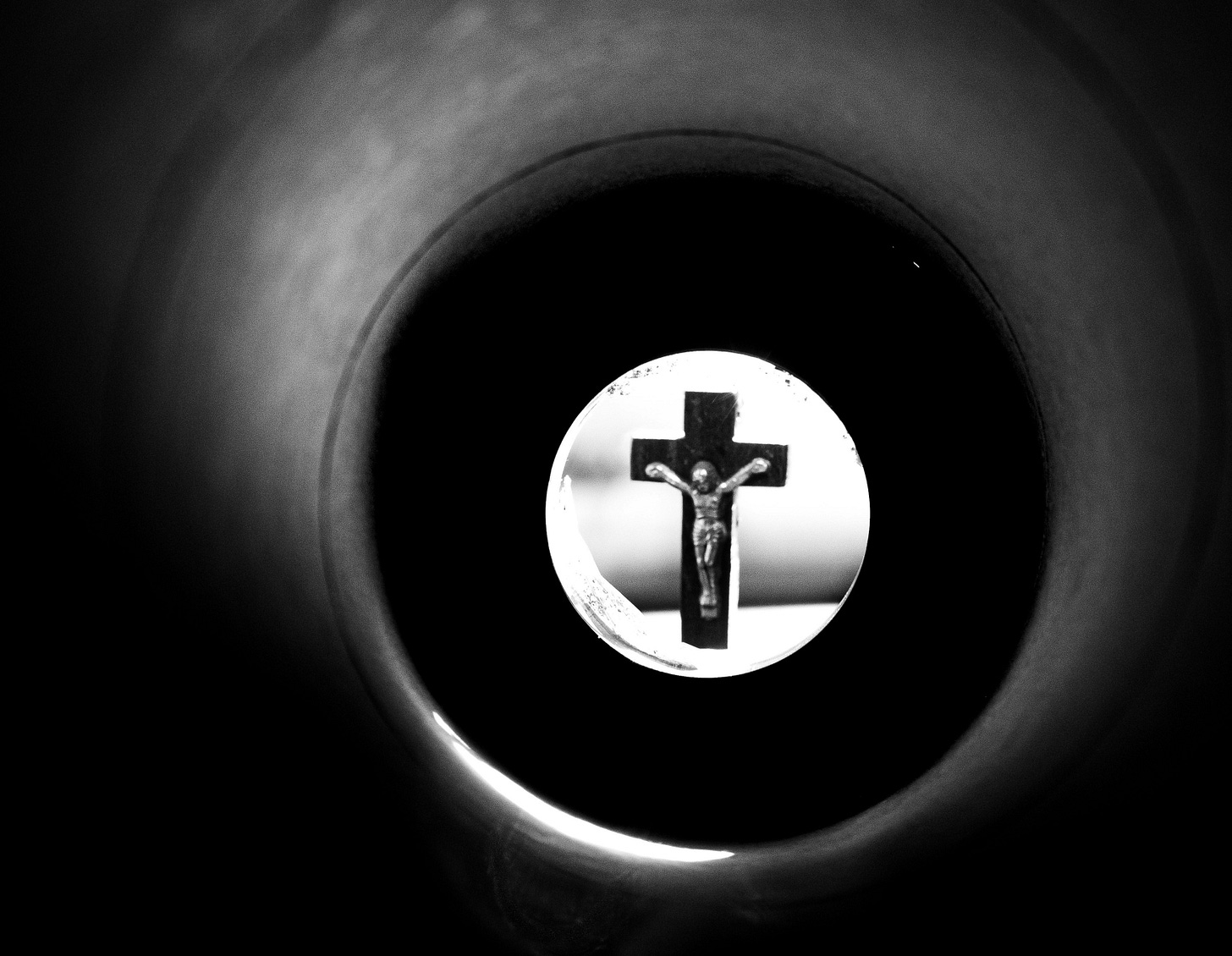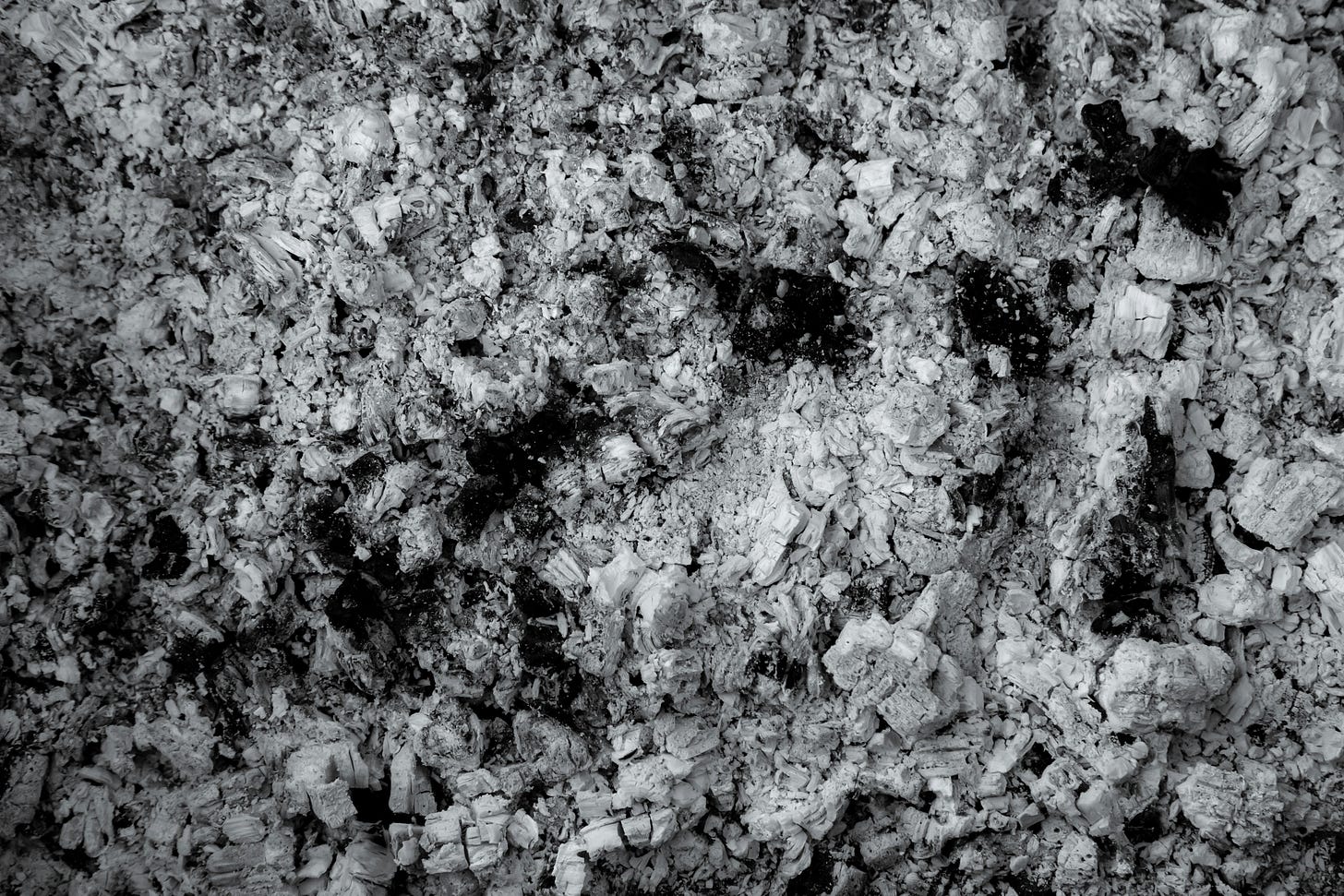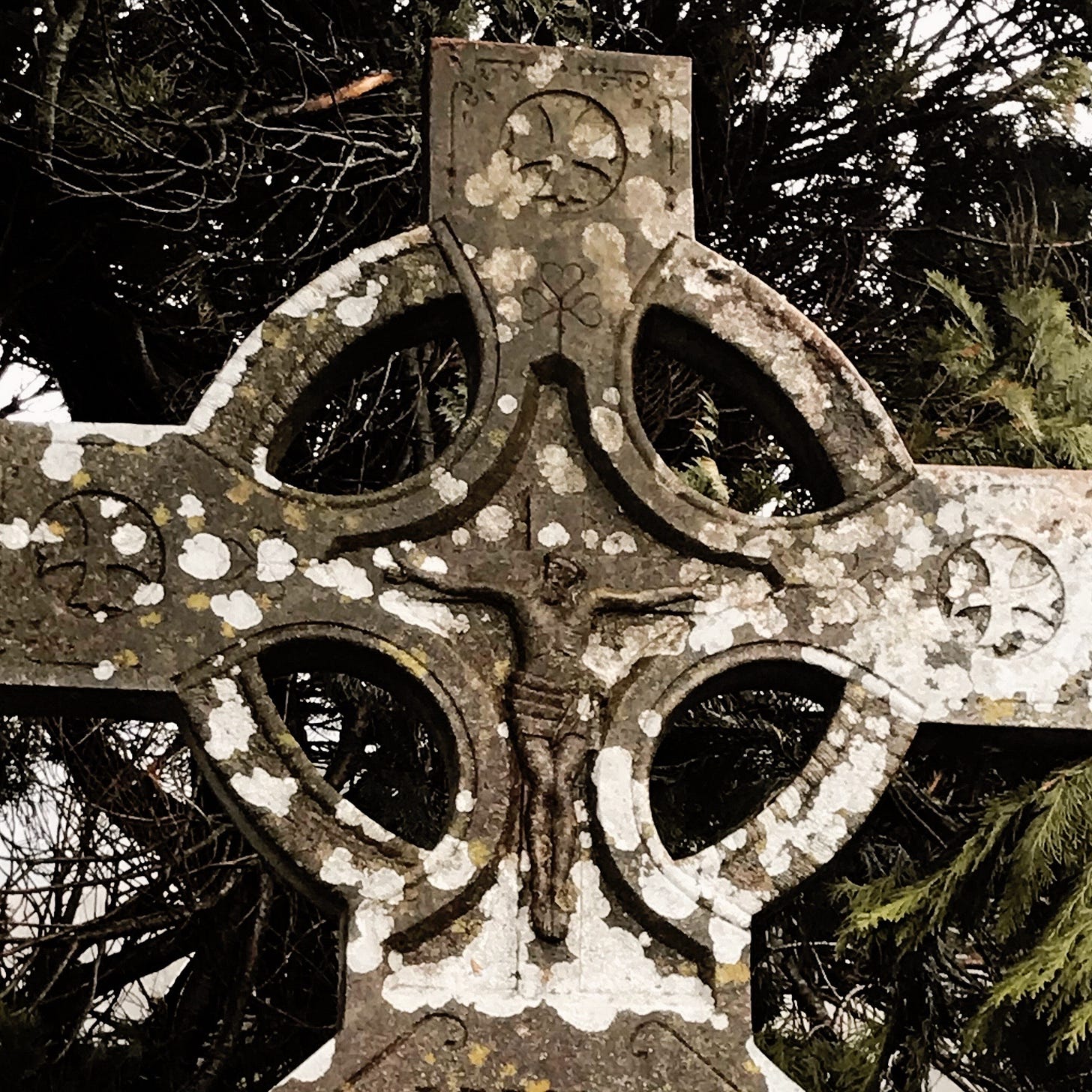Today is Ash Wednesday, and the beginning of Lent. As a way of leaning into this penitent season, my church will be studying the book of Jonah for the next six weeks. Growing up, I understood the story of Jonah to be a critique of a man who wasn’t willing to follow God’s instructions to go to the mission field. His punishment was a three-night stay in the belly of a big fish. The lesson was simple: Don’t disobey God when he tells you to do something. (unless, I suppose, you are a marine biologist??)
Now that I’ve studied this book of the Bible as an adult, I understand the story to be more of an exploration of the psyche and values of Jonah himself. Yes, we travel to the depths of the ocean in this story. But we also do a deep dive into the motives of Jonah’s heart. And there’s more than a simple unwillingness to suffer and obey at work here.
One has to wonder what, exactly, led Jonah to refuse God’s command. What about the task was so abhorrent to him that he would defy Almighty God…run in the opposite direction?
After Jonah’s initial refusal to go minister to the people of Ninevah, he ends up on a boat in a violent storm and is cast into the sea. It’s interesting that the text notes “the Lord provided a huge fish to swallow Jonah.” That fish (which could easily be imagined as adversarial) was actually a provision…a safe, though frightening haven of air in the depths of the sea where Jonah could spend some time taking inventory of his life. What felt like punishment was a protection, an opportunity for repentance and salvation.
It is only in this place of vulnerability and uncertainty that Jonah actually expresses humility. I suppose in that situation it would be hard to feel anything other than meek. Jonah vows to make “make good” on his promise to serve God. He renounces the worship of worthless idols (perhaps thinking of the Ninevite idolaters to whom he’d be prophesying).

Jonah’s subsequent mission trip to Ninevah was wildly successful by any standards. The people immediately repented upon hearing Jonah’s message, the king himself decreeing a penitent fast to be observed throughout the land.
But Jonah’s true colors once again emerge. The truth is that all along, he wasn’t comfortable with the expansiveness of God’s mercy. He wanted to see the idol worshippers ruthlessly punished. He didn’t like the idea that God might give the wretched people of Ninevah the same status he’d been afforded: belovedness, belonging, forgiveness.
Jonah wanted to maintain his own sense of superiority, his own elite position over the people of Ninevah. He valued his own rightness, his own religious hegemony. His unwavering commitment to his own piety made him the true idol worshiper.
Our study of the book of Jonah will be a call to open-handed humility. Humility is a virtue not unique to Lent but certainly highlighted by it. Lent is a season of remembering your own proclivity towards sinfulness despite your belovedness. It is a reminder of our mortality even as we anticipate the resurrection to come.
Lent is also a season that calls us to evaluate our own visceral response to the cross and empty tomb. What does Christ’s offer of salvation engender in you? Does it foster a sense of profound gratitude, humility, and expansion of your own compassion? Or deep down, does it tantalize your own sense of supremacy, offer you the high status as being chosen of God…as in “I once was blind, but now I see.” I see. I’ve seen the light.
It seems safe to say that pride is the most sly and insidious sin the Christian will struggle with, taking all kinds of forms and manifestations. Sometimes pride disguises itself as courage or conviction. Sometimes – as it did with Jonah – it appears in the form of self-pity or a persecution complex. Sometimes pride manifests as mere apathy and disengagement…an unwillingness to be bothered by anything you deem to be beneath you.
Christians are apt to passionately denounce whatever and whoever they believe is “the greatest threat to the church in our lifetime.” But I would posit that the greatest enemy we face is our own pride, our own hubris. The enemy is within. And we must fight it at all costs.
Combatting pride, of course, means supplanting it with humility. I wrote in my book Holy Unhappiness: “Humility is the great gift of our faith. It is the crown jewel in the regalia of Christian virtues. It makes all other virtues possible.” It is the pride and sense of elitism of the religious leaders that seem to always draw the most ire from Jesus during his time on earth. It was always humility that God has wanted more than sacrifices or sacred rituals. It is a life of love and submission that Paul and the other apostles impart to us again and again.

I write a lot about humility. In fact, I’m great at feigning humility. I’m affable and self-deprecating. I hedge, offer disclaimers to all my opinions…as if I’m always open to being wrong.
But deep down, I’m pretty committed to my own rightness, to my elite status as a person who’s risen above the riff-raff and climbed the moral high ground. There’s no way I’m getting duped by any false prophet – I’ll never be taken for a ride by fake news or conspiracy theories.
I’m informed.
I’m fair and balanced.
I’m astute and adept at reading the times.
But here’s the thing. I think the times we are living in require a deeper, more honest inventory of ourselves. Truthfully, I’m as stubborn and headstrong as anyone.
Let me state the obvious: we are living in a time of unique vitriol and unrest. It is not exactly unprecedented (please see the Civil War, WWI, WWII, etc.), but it is unique in that every day we are faced with a barrage of information (both false and true) from the media we are consuming. These forms of media are uniquely galvanizing us against one another, without providing the face-to-face interaction that humbles and humanizes us. We are all like little angry bots wreaking havoc on our political systems, our churches, our communities. Spiritually, it is malforming. It feeds our pride and starves our humility.
In light of this volatile political moment, social media influencers are offering all sorts of suggestions on how to remain above the fray. “Protect your peace at all cost,” some say. Limit your social media intake (they tell us on social media, ha). Let your feet touch grass every now and then.
Others implore us to dig in our heels and stand for “the truth.” “Don’t give up!” they say. Don’t resign yourselves to the overwhelm. “Be the change you want to see in the world!” Others insist that we must take in more information, always reading both sides and never burying our heads in the sand. Some say Christians should avoid posting anything political, while others say it’s a disgrace for Christians to vacate the marketplace of ideas in this critical moment.
And then there are others who say you should just go off the grid entirely, plant a garden, raise your own chickens (let’s be honest, that’s some sound advice), and tune out anything and everything until the world ends or the Lord returns.
So, like every good “influencer” out there, I’m going to offer my own advice for this moment: Maintain your humility at all cost. Nurture humility, meditate on humility, look for humility on every page of the Bible.
If you choose to engage online, do so with humility. If you choose to remain silent, do so with humility. If you push back against your neighbors opinion, do so with humility. If you start a homestead as an act of resistance, do so with humility. Always assume your pride is crouching at the door, waiting to consume the goodness of your best efforts. Scrutinize your motives whenever you can. Check your willingness to admit when you are wrong. Demonstrate constant curiosity about what is animating you. Notice every moment when hubris gets the better of you, compels you to post, pushes you towards rage, or beckons you to dehumanize someone else. Be quick to apologize. Be slow to insist you are right. Pray without ceasing.
Humility doesn’t mean compromising your beliefs or capitulating under pressure. Humility can sometimes include adamance, forthrightness, and outspokenness. But it always, always involves a posture of open-handedness…a willingness to truly listen. Humility requires addressing everyone, even your opponents with dignity. Most importantly, at the core of true humility is maintaining the belief that you might actually be wrong sometimes. That your wisdom is flawed, your vigilance sometimes misguided, your passion sometimes misappropriated by hidden pride.
In short, remember you are a sinner…saved by grace. Which brings us back to Lent, and the story of Jonah.
It’s interesting that the word “provide” appears three more times in Jonah. Jonah descends into a pouty revere after the people of Ninevah turn to God…and I can’t help but wonder if Jonah’s pride was simply wounded that he’d be wrong about the people he’d decided were the enemy. God - in his tireless compassion - provides a plant to offer comforting shade to the humbled prophet. But when Jonah still refuses to come around, God provides a worm to eat the plant and a scorching wind to admonish Jonah once again.
Perhaps this political moment should be seen as a sojourn in the belly of a big fish. Perhaps it’s a strangely benevolent worm, eating away at our sense of safety and rightness. It is as much provision as punishment, meant to offer us the opportunity to take inventory, to repent of our own particular pride, and cultivate humility.
Remember that you are but dust. Remember that you are saved by grace. Remember and repent.

AND NOW FOR SOME PROVISIONS…
March is the month we celebrate St. Patrick’s Day, and because have some Scots-Irish blood flowing through my veins, I always enjoy marking the day (March 17th) with some traditional Irish food and music.
For my part, I think cabbage is an incredibly underrated vegetable. It goes great in a stew, a stir-fry or a salad. Here’s a great recipe from the Pioneer Woman for sausage and cabbage. I wouldn’t put it past me to put a runny egg on top of this dish and serve it for breakfast.
For those of you who enjoy Irish music, but don’t have the nervous system for rowdy bar songs or find Celtic Woman to be a bit overproduced and hokey (sorry, not sorry), here is a playlist of some favorite traditional Irish songs, most sung and played by Irish musicians in a way that feels authentic to the originals.
And finally, I’ll leave you with a portion of the Prayer of St. Patrick…one of my favorites to recite in times of unrest and uncertainty:
“Christ with me,
Christ before me,
Christ behind me,
Christ in me,
Christ beneath me,
Christ above me,
Christ on my right,
Christ on my left,
Christ when I lie down,
Christ when I sit down,
Christ when I arise,
Christ in the heart of every man who thinks of me,
Christ in the mouth of everyone who speaks of me,
Christ in every eye that sees me,
Christ in every ear that hears me.”






What a wonderful message for me, this first day of lent. Beautifully written! Thank you!
I’m so grateful to have read this on the first day of Lent. Thank you, Amanda. Your insights, your way with words, your manner of writing are gifts. May we all have the courage to follow Jesus on the narrow path of humility.